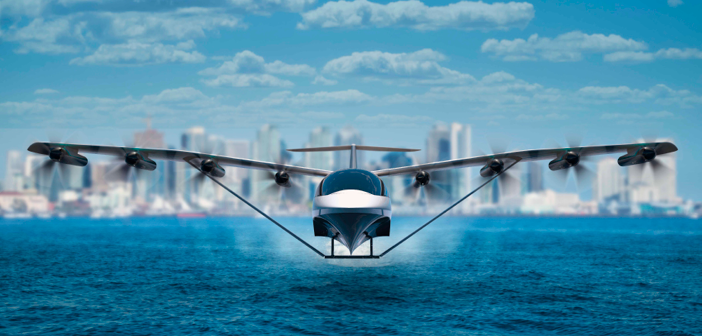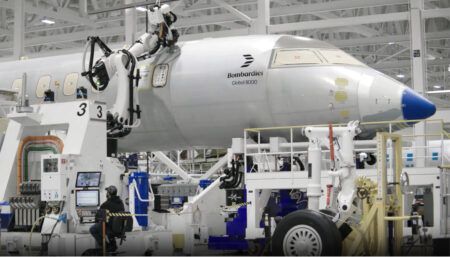Bureau Veritas Marine and Offshore has been chosen by Regent to evaluate the Viceroy 12-passenger seaglider, its initial wing-in-ground-effect vehicle. The aim is to secure a certificate of classification for the vessel type.
The Bureau Veritas classification society has more than 190 years of experience reviewing and approving novel seagoing vessels. Obtaining classification notation is a necessary milestone before commencing serial production of a new vessel and is a big step forward in enabling seaglider operations in countries around the world.
“Bureau Veritas is looking forward to working with Regent on classifying this novel wing-in-ground-effect craft,” said Laurent Leblanc, senior vice president, technical and operations, Bureau Veritas, Marine and Offshore. “Seagliders present an opportunity for Bureau Veritas to assess the safety and suitability of cutting-edge systems including electric propulsion systems, high-speed hydrofoils and digital fly-by-wire control systems.”
Regent has completed the first stage of the risk-based qualification of new technology process as documented in Bureau Veritas Guidance Note NI 525, and says this process will lead to an approval in principle (AIP) of the Viceroy seaglider design in 2022. Regent and Bureau Veritas have been working together for several months and have established certification acceptance criteria and the technology maturity scale that will apply to the vessel, incorporating technology readiness level, integration difficulty and operational conditions, that will be used to determine the qualification processes that each system and subsystem will undergo and conform to before the vessel receives its classification certification.
“Classification of seagliders is an important aspect for our customers to operate seagliders and obtain insurance worldwide,” said Billy Thalheimer, Regent CEO. “Regent is excited to be working with Bureau Veritas through this qualification process given their expertise and experience with complex maritime vessels.”





